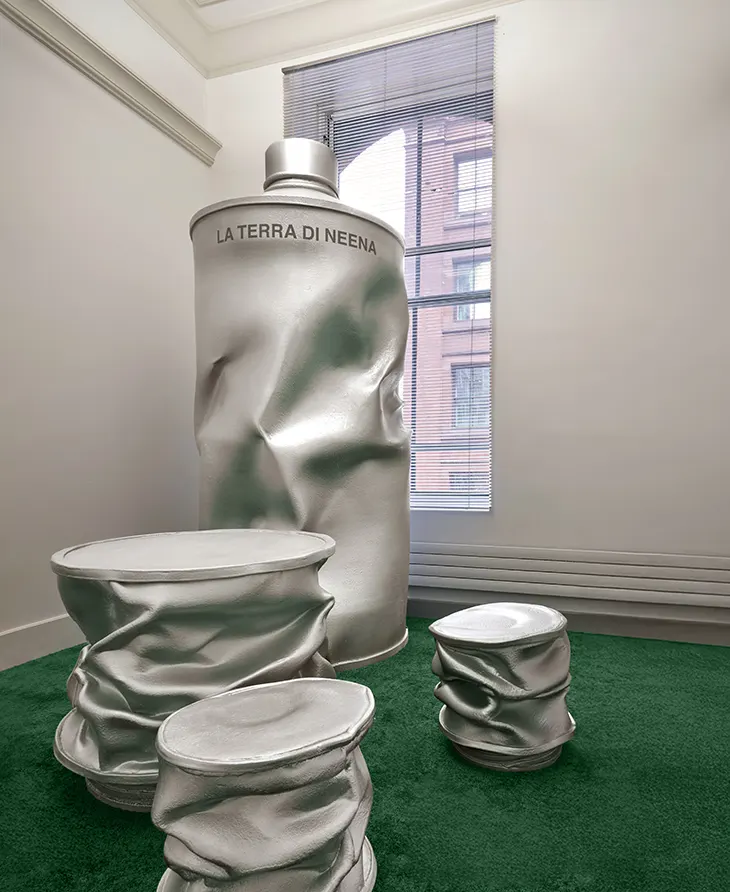
La Terra di Neena introduced its first U.S. presentation through an installation created with Crosby Studios at the inaugural edition of Basic.Space NY. The event took place in SoHo from November 14-16 and marked the arrival of the Italian olive oil and home goods brand to the American market. Visitors saw family-farmed olive oil displayed alongside collectible furniture and home goods shaped by references to utilitarian kitchen tools.
DESIGN
The project began in Tuscany, where founder Tyler Billinger and his partner, Crosby Studios founder Harry Nuriev, traveled with Billinger’s family. During the trip, they encountered a neglected seventeenth-century farmhouse and the wild olive grove that surrounded it. The pair purchased the estate and began an ambitious renovation led by Crosby Studios. Graphic silhouettes, metallic surfaces, and sculptural forms, signatures of Nuriev’s practice, entered a dialogue with the rustic structure and reshaped the interior into a contemporary retreat for friends and family.
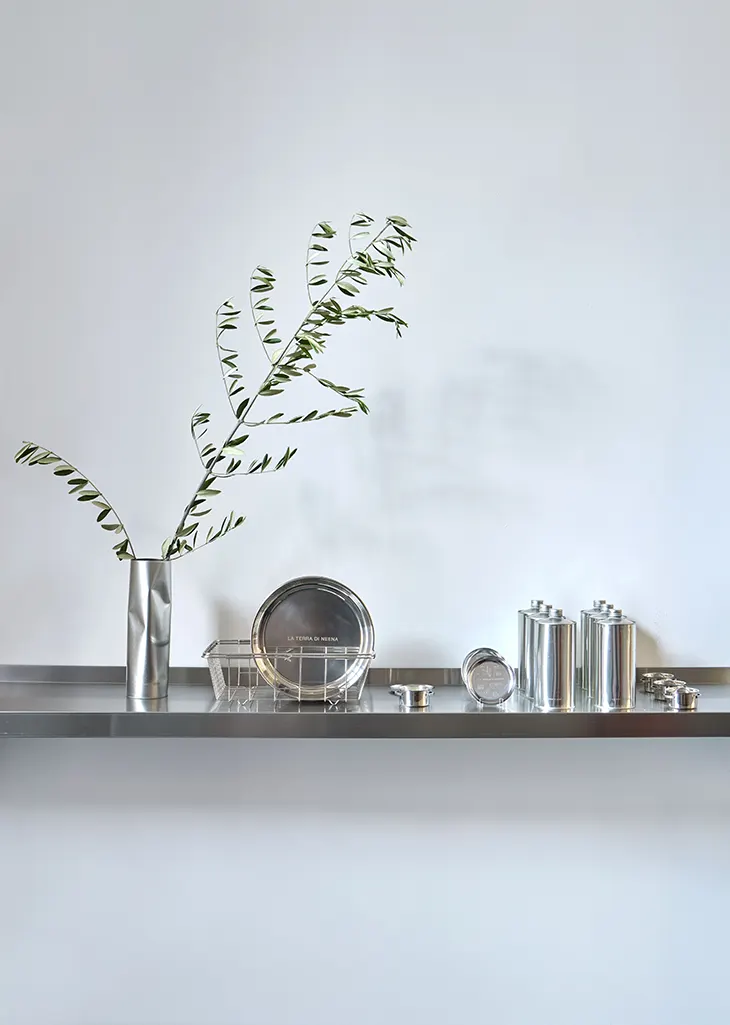
After the restoration, Billinger and his parents, Nina and Salvatore Marra, organized their first informal olive harvest with relatives and close friends. The experience deepened the family’s interest in the grove and inspired them to revive the land. Over four years, they restored the terrain, completed architectural work, and obtained agricultural certification. With the foundation in place, Billinger invited Crosby Studios to help form the visual identity of La Terra di Neena.
Nuriev and his studio shaped the brand with their distinct design language: sharp graphic lines, mirrored finishes, and sculptural utility. The direction grew from the rhythms of the estate, the tools used during harvest, and the gatherings that defined the property. Billinger named the brand after his mother, describing it as a connection between new family traditions and the ongoing creative dialogue he shares with Nuriev.
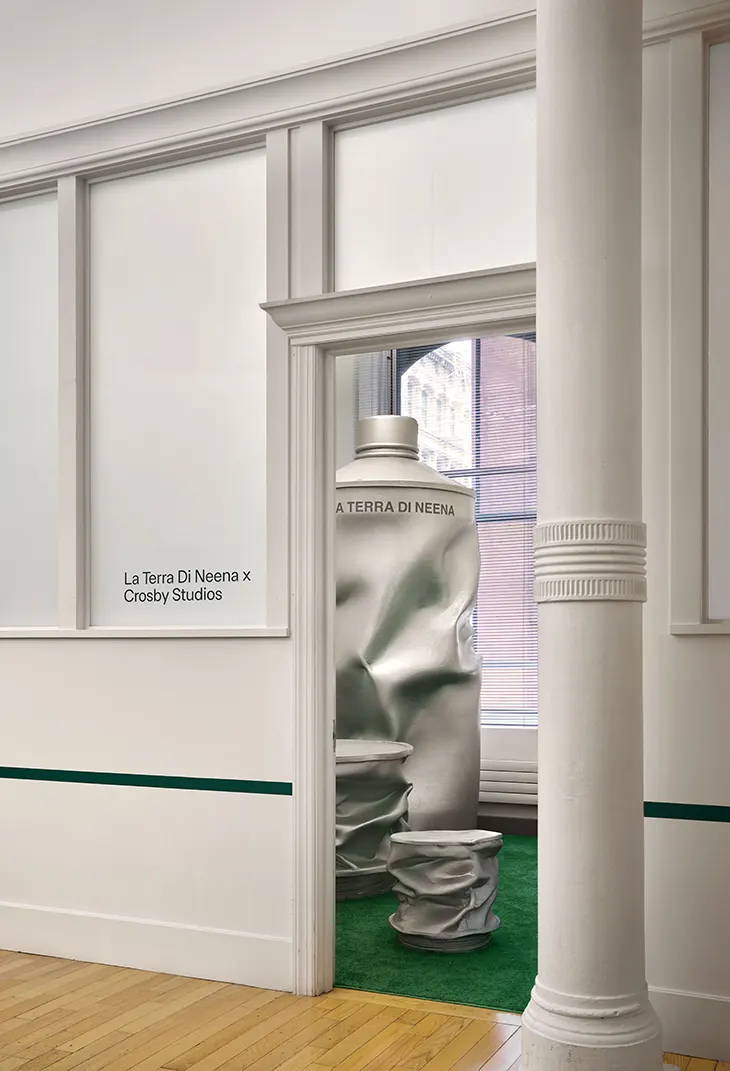
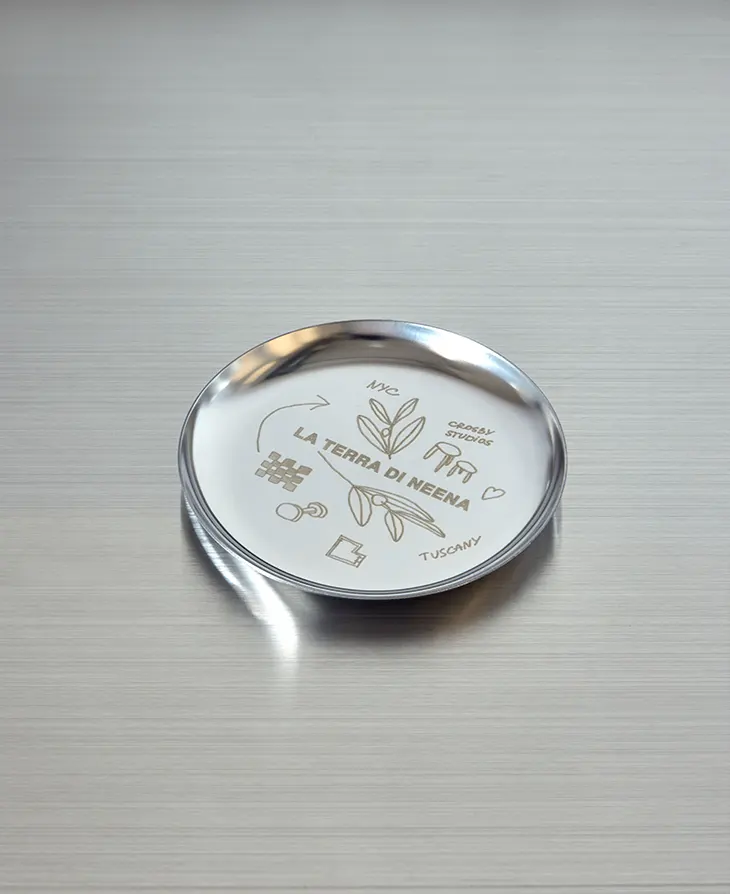
The collaboration made its first public appearance at Capsule Plaza during Milan Design Week. There, La Terra di Neena presented 200 laser-engraved olive oil canisters, sculptural vases and candles inspired by dented tins, glycerin soaps cast with olives and branches, mirrored dishware, and a chair built from unused cans saved from the previous harvest. This debut introduced the project’s material vocabulary and set the stage for the expansion in New York.
At Basic.Space NY, La Terra di Neena and Crosby Studios unveiled a new set of monumental works that extended the Milan installation. The presentation included a dining table, stools, and a large-scale sculpture shaped like oversized dented tin olive oil canisters. Wax candles appeared in the form of miniature cooking pots, and mirrored metallic plates engraved with La Terra di Neena and Crosby Studios motifs referenced casual drawings often made on dinner napkins.
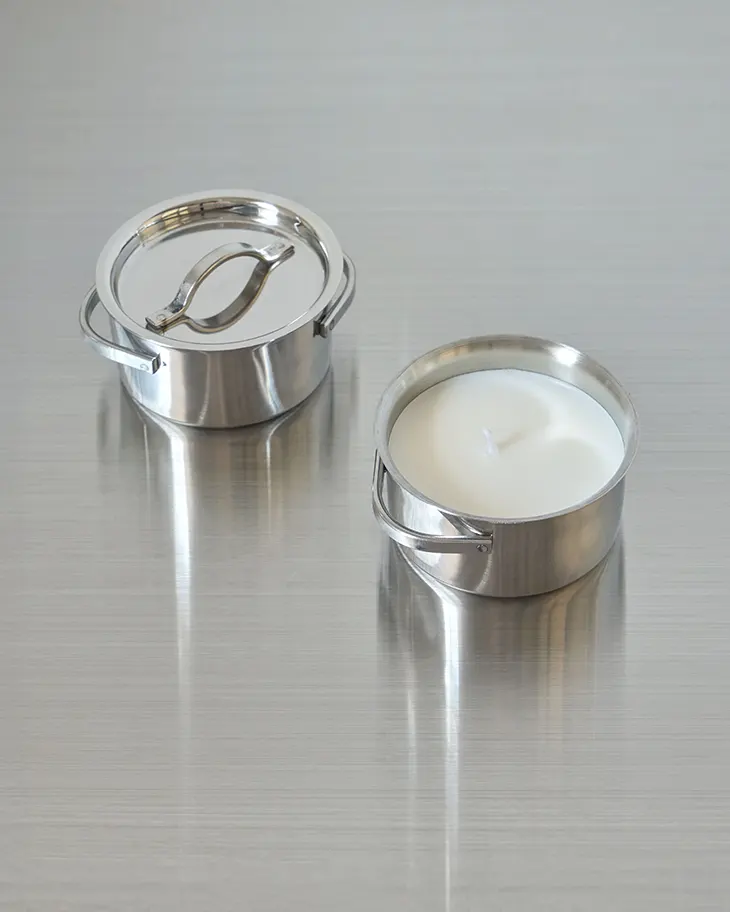
Nuriev described the project through his philosophy of Transformism, which he views as a way of seeing and repurposing objects in a world saturated with material and information. He defined it as the act of turning one thing into another by revealing its potential. He noted that the idea extends beyond material technique to the practice of recognizing new life in items such as an aged sofa or an overlooked olive tree.
Billinger reflected on the contrast between the sleek surfaces of the collection and the slower pace of work on the land. He said that the experience at La Terra di Neena reshaped his sense of time and encouraged a more deliberate outlook rooted in process and patience. The project continues to grow from that foundation, drawing on the partnership between family labor, agricultural restoration, and Crosby Studios’ design approach.



